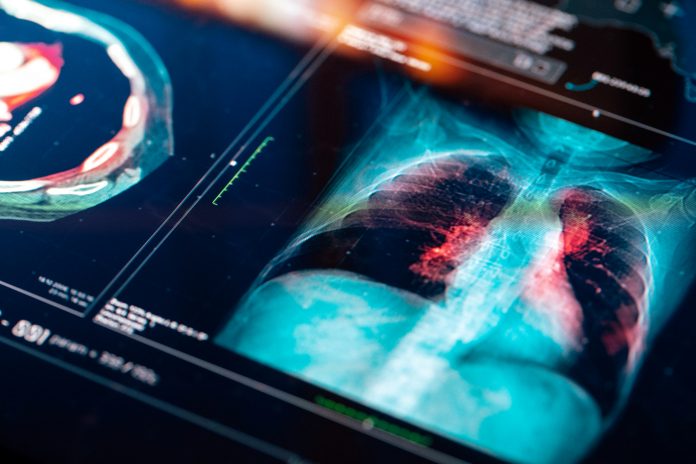Researchers have identified 140 genes that could change how non-small cell lung cancer (NSCLC) patients are treated with lung cancer immunotherapy and low-dose radiation
Published in Cell Reports Medicine on Feb. 23, immunotherapy, a treatment using the body’s immune system to combat cancer, has offered hope to many lung cancer patients.
Addressing the challenges of lung cancer immunotherapy
However, its effectiveness has been limited, with only 20 to 25 per cent of individuals responding positively. This new study addresses this challenge by identifying a genetic signature that could predict enhanced disease-free survival among NSCLC patients undergoing combination therapy.
The study, led by a team of researchers, looked into the complexities of NSCLC treatment by examining a cohort of 60 patients. Initially, the researchers discovered that combining low-dose radiation with durvalumab, an immune-boosting drug, significantly improved cancer-free survival rates. Building on this, the team aimed to solve why certain tumours failed to respond to this therapy.
Combination therapy approach
Through analysis of pretreatment tumour biopsies, the researchers uncovered a distinct gene expression profile separating tumours that responded to combination therapy from those that did not. This profile, consisting of 135 upregulated genes and five downregulated genes, highlights the aggressive nature of tumours exposed to the Combination therapy approach.
The study helped reveal the dynamic nature of the genetic signature, showing how combination therapy reversed the identified gene set’s activity and supported immune-related cellular pathways.
Determining those who will benefit from lung cancer immunotherapy
By using the identified gene signature, clinicians may soon be able to identify NSCLC patients most likely to benefit from lung cancer immunotherapy. This personalised approach can maximise treatment efficacy while minimising adverse effects.
Looking ahead, the researchers are set to expand their investigation through a larger patient study. By further validating the efficacy of the identified gene signature in predicting treatment response, they aim to pave the way for widespread adoption of this innovative approach.











